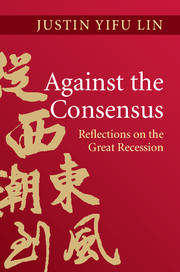Book contents
Part III - How Poor Countries Can Catch Up: Flying Geese and Leading Dragons
Published online by Cambridge University Press: 05 June 2013
Summary
A global push for infrastructure investments in developing countries, as proposed in Part II, will work only if developing countries can grow dynamically in the coming decades. But do they have the space to do so in today’s uncertain, stressful global economy? And, if so, how do they seize the opportunity and then sustain their growth?
Development thinking has focused on what developing countries do not have and that developed countries do (capital-intensive industries in structuralism), and on what developing countries cannot do well and developed countries can (governance and business environment in the Washington consensus). Guided by this development thinking, developing countries after World War II adopted import substitution strategies in order to develop capital-intensive industries that defied their comparative advantage. For protecting nonviable firms in priority sectors, the strategies created distortions, and led to rent-seeking, political captures, stagnation, and frequent crises. The Washington consensus attempted to correct the distortions that resulted from previous import substitution strategies, but it neglected the government’s role in overcoming coordination and externality issues in the process of structural transformation. The new structural economics focuses on what developing countries have (their endowments) and what they can do well based on their (latent) comparative advantage (as determined by their endowments), to start them on the road to dynamic structural change.
- Type
- Chapter
- Information
- Against the ConsensusReflections on the Great Recession, pp. 99 - 100Publisher: Cambridge University PressPrint publication year: 2013



